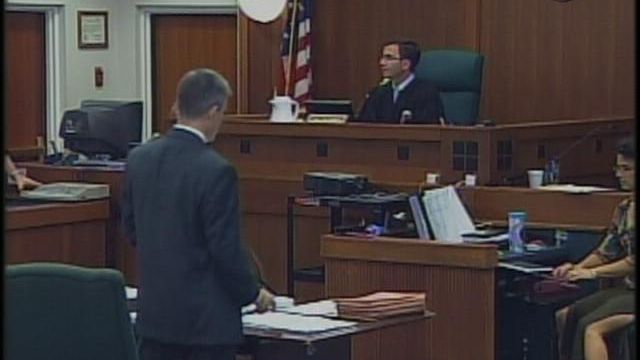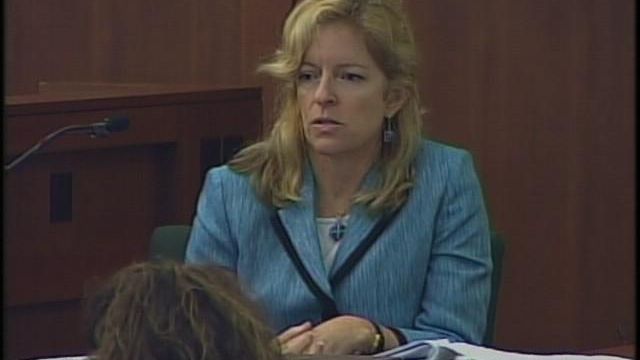Accused shooter's journal: 'Planning your suicide is so fun'
An Orange County man accused of killing his father and opening fire on his former high school three years ago wrote in his journal that he wanted to die and that "planning your suicide is so fun," according to testimony from a forensic psychiatrist.
Posted — UpdatedDr. Nicole Wolfe said she talked with Alvaro Castillo, 22, and read his journals in which "he spent a great deal of time planning his suicide."
"(He wrote), 'Man this feels so good. Planning your suicide is so fun,'" Wolfe said.
Castillo is charged with fatally shooting his father, Rafael Huezo Castillo, on Aug. 30, 2006, and then driving to Orange High School with a cache of weapons and opening fire. Two students were injured in the school shooting, which ended when school personnel tackled the gunman.
Castillo has pleaded not guilty by reason of insanity.
Wolfe also spoke of Castillo's obsession with a girl named Ana, the 1999 Columbine High School shooting massacre and the shooters, Eric Harris and Dylan Klebold.
Castillo's homosexual feelings for Harris "made him uneasy," Wolfe testified.
"(He wrote), ' Eric is just so good-looking. I can't believe he couldn't get a date for the prom. If I was a girl, I would have gone to the prom with him. Does that sound gay, straight or bi?'" Wolfe said, citing Castillo's journal entry.
Castillo said in homemade videos prior to the shootings that he was obsessed with the Columbine shootings.
Four months prior to the shootings, he attempted to kill himself. He was subsequently treated at a psychiatric hospital. After his release, he began to stockpile weapons and took a trip a trip to Colorado to the Columbine site.
Psychiatrist Karen Graham testified Monday that if she had known about the visit, she would have been concerned because it showed “that he was thinking a lot about it."
Graham treated Castillo in the months prior to the shootings. She also said she was unaware that he was obtaining weapons.
Graham was called by the prosecution as a rebuttal witness in the trial, which began Aug. 3.
• Credits
Copyright 2024 by Capitol Broadcasting Company. All rights reserved. This material may not be published, broadcast, rewritten or redistributed.






